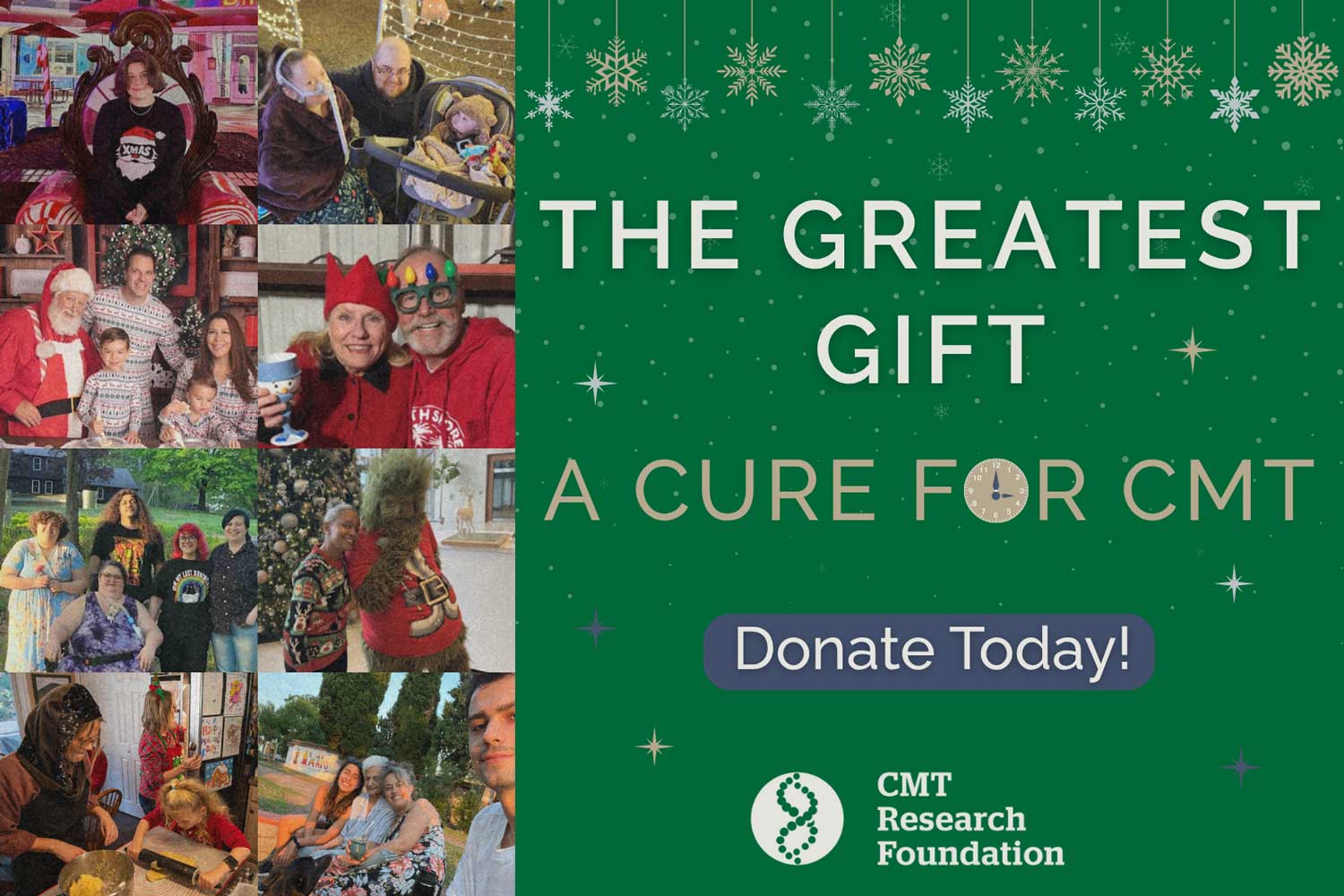Gene Therapies for CMT

Gene therapies are a means to treat disease by modifying the genetic machinery of cells in the body. The goal is to target the underlying genetic cause of disease, which can be accomplished via repair of a genetic defect or replacement of missing or defective genes with healthy, fully functional ones. This in turn enables the normal expression and function of critical proteins.
There are a number of different types of gene therapy. Some of those under development right now include:
- Gene Editing is a precise method of targeting a gene mutation by inserting, removing, or replacing specific pieces of DNA within the faulty gene itself.
- Gene Knockdown, or the reduction of gene expression resulting in reduced protein production, can be achieved during the protein manufacturing process during either transcription or translation via a strategy known as RNA interference (RNAi).
- Gene Replacement is a technique in which the addition of a new, working copy of a gene into target cells serves as a healthy replacement for a missing or mutated gene. The new gene is manufactured in the laboratory and transported to the nucleus of targeted cells, where its code can be read and its instructions for protein production implemented. This type of therapy may be used in loss-of-function disorders caused by a missing or defective gene and the subsequent deficiency or insufficiency of that gene’s normal product. The introduction of the healthy gene is intended to result in production of a sufficient amount of properly functioning protein.
Transportation of genetic material to target cells is an incredibly important part of the gene therapy approach. Small viruses often serve as vectors, or transport vehicles, capable of delivering genetic material “cargo” to its destination either into a cell’s existing DNA or into its nucleus. Many scientists currently are working with adeno-associated viral (AAV) vectors, which are able to penetrate the cell’s nucleus and aren’t known to cause diseases in people. However, their small size limits the amount of genetic material they can carry.
Risks are inherent with any treatment, and gene therapy is no exception. However, it likely won’t be possible to “turn off” gene therapy, which is why it’s critical to study methods of administration, the genetic material to be delivered or altered, a patient’s disease stage and other aspects of his or her genetic makeup.
CMT Research Foundation is leading the charge to ensure safe and effective therapies for all forms of CMT make it to the market to help those living with CMT today. We are working every day to support the families, the foundations, the academics, the scientists, the biotechs and the pharma companies who share our goal and who are working to make it happen.
Related News & Research
Dr. Afrooz Rashnonejad Joins CMTRF’s Scientific Advisory Board
CMT Research Foundation is pleased to announce that Dr. Afrooz Rashnonejad has joined the Foundation’s Scientific Advisory Board. The SAB is composed of distinguished scientific and clinical experts specializing in Charcot-Marie-Tooth disease and drug development. The...
NMD Pharma Announces FDA Orphan Drug Designation for NMD670
NMD Pharma has announced that they have been granted orphan drug designation by the Food and Drug Administration for NMD670, their novel, oral, small molecule inhibitor of the skeletal muscle-specific chloride ion channel ClC-1, for the treatment of...
Maintaining Momentum: CMTRF’s Vision for 2025 and Beyond
Greetings and Happy New Year to you all. When I began my tenure as CEO of the CMT Research Foundation in October 2024, I was immediately inspired and impressed by the work of the Foundation. I was equally moved by the dedication of the greater CMT community,...
NMD Pharma Publishes Findings Supporting the Role of ClC-1 Inhibition in Charcot-Marie-Tooth Disease
NMD Pharma announced that they have published new clinical and preclinical data that provides evidence that targeting neuromuscular junction deficits could potentially improve muscle function in CMT patients. The peer-reviewed paper titled “Neuromuscular Transmission...
CMTRF Earns Top Rating From Charity Navigator
The CMT Research Foundation has been evaluated for the first time by Charity Navigator, the nation’s largest charity evaluator, and earned a Four-Star Rating, the highest possible rating. Charity Navigator’s impartial, third-party evaluation validates CMTRF’s...
Dr. Rudolf Martini Completes Project Investigating the Therapeutic Benefits of Reducing Inflammation in CMT2J Models
Inflammation in nerve tissue is a common feature seen in many mouse models of demyelinating forms of Charcot-Marie-Tooth disease, a long-standing observation from the team of Dr. Rudolph Martini at the University Hospital Würzburg. What is less clear is whether...
The Greatest Gift: Jillian Cabernel’s Story of Strength, Magic and the Hope for a Cure
The Greatest Gift: Jillian Cabernel, Vancouver, BC, Living With CMT December 2023 was a Christmas to remember for Jillian Cabernel. For the first time in her life, she truly felt the magic of the holidays. Jillian has spent her entire life living with...
Update on NMD Pharma Clinical Trial
NMD Pharma, a clinical-stage biotech company dedicated to developing novel and improved treatments for patients living with neuromuscular diseases, has announced that it has dosed the first Charcot-Marie-Tooth disease patient in its Phase 2a clinical trial of NMD670...
CMT Research Foundation Funds Project with Alloy Therapeutics’ 82VS to Test Novel RNA Therapeutics for Charcot-Marie-Tooth Disease
The CMT Research Foundation has invested over $500,000 in a program led by 82VS, the venture studio of Alloy Therapeutics, Inc. to discover and develop novel Antibody Oligonucleotide Conjugate (AOC) therapeutics for CMT. Oligonucleotide therapeutics offer promise for...
Dr. Alessandra Bolino Completes Project Testing PIKfyve Inhibitor Drug from AcuraStem in CMT4B1 models
Previous research from Dr. Alessandra Bolino demonstrated that inhibiting a protein called PIKfyve kinase could ameliorate some disease characteristics in CMT4B1 cells. In this project, Dr. Bolino partnered with AcuraStem to test one of their PIKfyve inhibitor drug...

